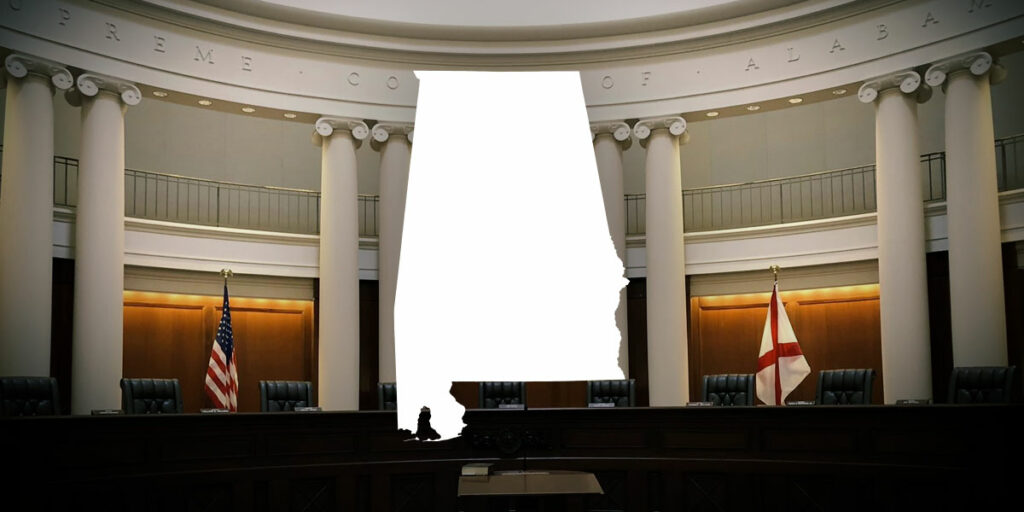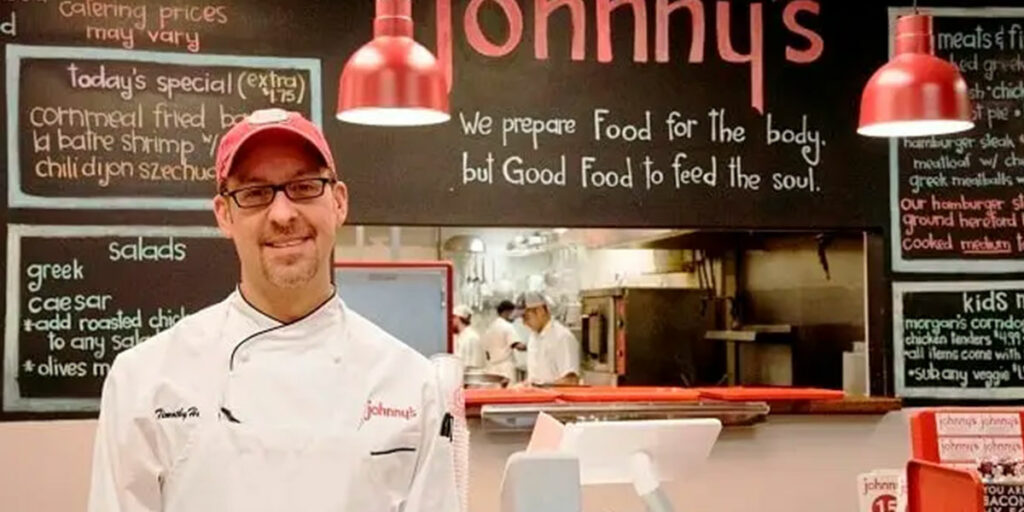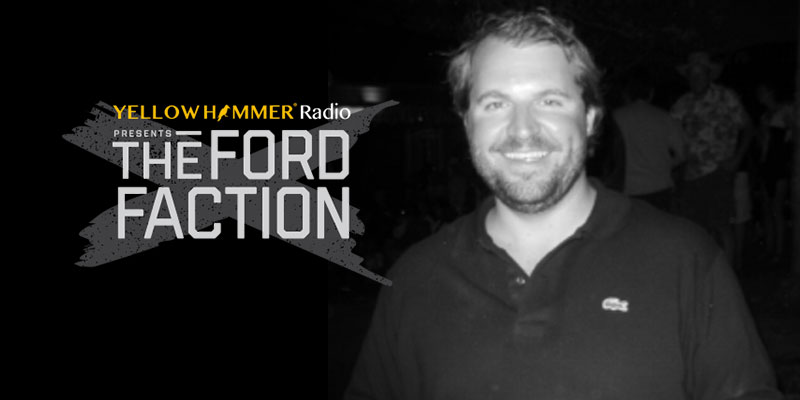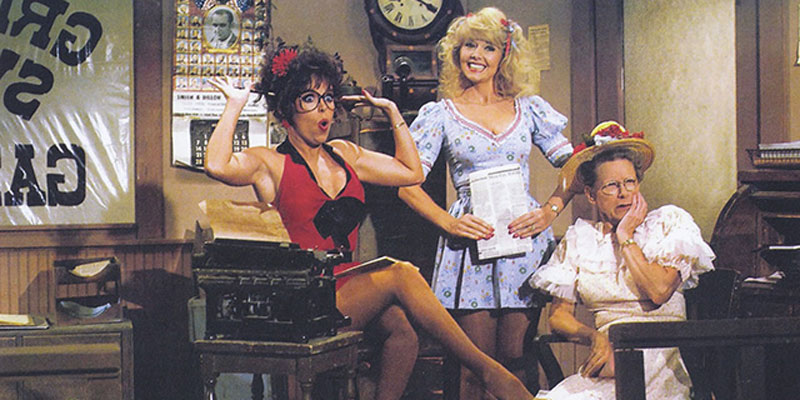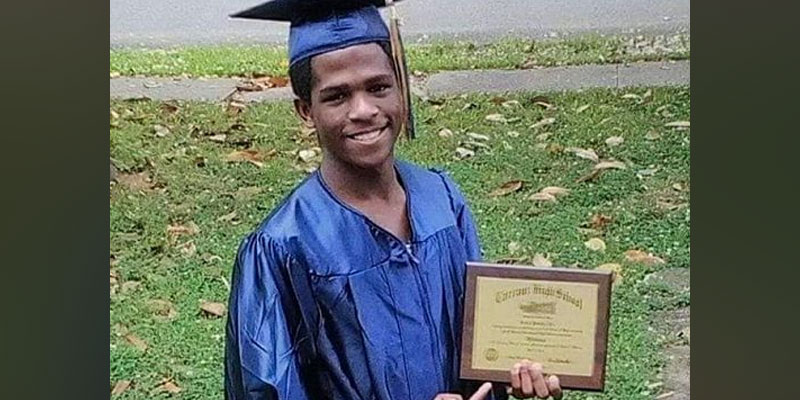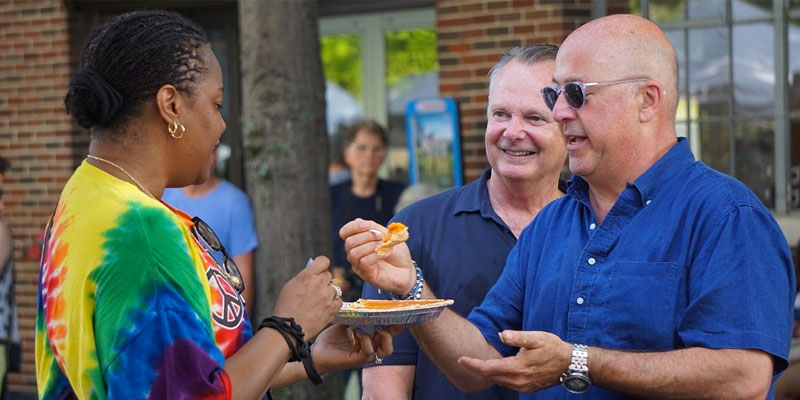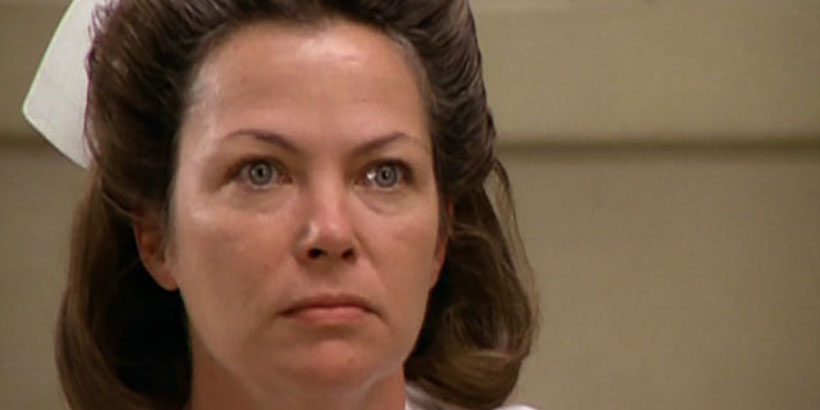
By Alec Harvey
Forty years ago, Birmingham’s Louise Fletcher made history at the Academy Awards, winning the Oscar for best actress and giving part of her acceptance speech in sign language for her deaf parents.
This year, a week before the Oscars on Feb. 28, she’s receiving another honor – the Mary Pickford Award from the International Press Academy.
“It’s the ‘we can’t believe you’re still here’ kind of award,” Fletcher says with a laugh.
At 81, after two bouts with breast cancer, Fletcher is still here, and though she’s worked fairly steadily throughout her career, she doesn’t mind a trip down memory lane to talk about the filming of “One Flew Over the Cuckoo’s Nest,” her Oscar win for playing Nurse Ratched, and her memorable, heartfelt speech.
That “Cuckoo’s Nest” even came Fletcher’s way is kind of a miracle, the actress says. After appearing in several TV series (“Bat Masterson,” “Perry Mason,” “Maverick”), Fletcher took an 11-year break to raise her two sons before returning on the big screen in 1974’s “Thieves Like Us.”
It was a reluctant return, because her husband, Jerry Bick, was one of the film’s producers. “I really didn’t want to do it,” she says. “It was too embarrassing being in a movie my husband was producing.”
Director Robert Altman persisted, though, and Fletcher ended up doing the role, earning some critical praise in the process. More importantly, director Milos Forman turned to “Thieves Like Us” when casting “Cuckoo’s Nest,” based on Ken Kesey’s book about life in an insane asylum.
“He was watching it to look at Shelley Duvall to play one of the girls who comes on the ward on the party night, and there I was in the movie,” Fletcher says. “He said, ‘Who is that?’ … It took a year for Milos to give me the part. I tried out for it many, many times. I didn’t realize that lots of other women were turning it down. They offered it to many movie stars who declined, luckily for me. To think, what if somebody else had said yes?”
‘Magical’ moments to come
But Fletcher got the role, and with a week’s rehearsal, she and Forman, Jack Nicholson and others set out to make film history. (“Cuckoo’s Nest” became only the second film, after 1934’s “It Happened One Night,” to win Oscars for best director, best picture, best actor, best actress and best screenplay. “The Silence of the Lambs” accomplished the feat in 1991.).
“I think we all felt that it was kind of magical” during filming, Fletcher says. “I think we all felt excited about the work we were doing, and the testament to that is that on the rare day when one of the actors was not working or wasn’t needed, they would come in anyway and watch what was going on.”
The first time Fletcher saw “Cuckoo’s Nest” with an audience sealed the deal, especially at a climactic moment when Nicholson’s McMurphy almost kills Fletcher’s Nurse Ratched.
“It was in Chicago, and it was a packed house,” she recalls. “When he strangles her, the audience stood up and yelled and cheered. Stood up. It was unbelievable. I was thrilled. That was the first sort of glimmer I had that my life was going to be slightly different.”
A Golden Globe award for best actress came first, and then came the Oscars.
“The day of the nominations, I didn’t even know they were coming out,” Fletcher says. “Milos and Jack and I were in Rome doing a publicity tour, so it was late in the day. I can’t remember where we were, but we were all together, maybe at a party of some kind.”
A dramatic change
The ensuing weeks were “just a whirlwind,” the actress says.
“It’s all a blur now,” Fletcher says. “It’s not anywhere near as pressurized then as it is now, and then it was unbearable. It was unbearable for my husband, who had a hard time with the whole phone ringing and people being around part of it. It changed our lives quite a bit at home. My kids, who were teenagers, didn’t like it much either. They didn’t like their mom being noticed. Being a teenager is hard enough.”
Fletcher didn’t know the ropes when the Golden Globes came around.
“I was so green, I didn’t know that people got makeup artists to come to their houses and do their faces and their hair,” she says. “I think my dress cost something like $79. I had no clue, and nobody clued me in, either.”
But when Fletcher spotted her Oscars dress at Bergdorf Goodman, a friend suggested she call the designer.
“I said, ‘What?’,” Fletcher says. “He said, ‘Maybe he’ll give you the dress or make one for you,’ and that’s what happened. It was Alfred Fiandaca, and the dress was beautiful. I still have it hanging up in the closet.”
A week before the Oscars, while on vacation with her husband, he asked if she had written a speech.
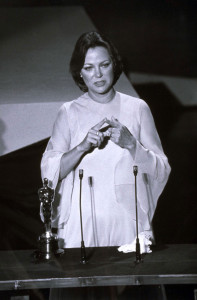
“I hadn’t, and he said, you better write something,” she says. “You don’t want to be stuck up there with nothing to say. He was very clever, and he gave me the first line about being in a mental institution. I wrote the rest, thanking all of the appropriate people, except my husband. It was something I didn’t do, and I should have done, and I regretted it.”
The signing was for her parents, the Rev. Robert C. Fletcher and Estelle Fletcher. Both deaf, they would be watching from Birmingham, where Fletcher had graduated from Ramsay High School.
The only person who knew Fletcher planned any signing in her speech was her sister, Georgie, a teacher for the deaf at Galludet University in Washington. American Sign Language at the time didn’t include articles and small words like the, an and but, and Fletcher wanted to include them.
“I’m sure if I had signed the old-fashioned way, it wouldn’t have mattered, but I wanted it to be right,” Fletcher says.
The night of the Oscars – March 29, 1976 – Fletcher arrived at the Dorothy Chandler Pavilion in Los Angeles knowing she was favored to win, but that didn’t help the nerves.
“You’re scared to death,” Fletcher says of being in the audience. “You’re all dried up and can’t get any saliva in your mouth. And then they focus on you, when you don’t know who is going to win, and you’re trying to look relaxed, but it’s impossible to be relaxed. Then you rush up there, and that dries you up even more.”
The speech went smoothly, except for the camera operators who weren’t ready for the signing.
“They said, ‘Why didn’t you tell us? We could have pulled back,’” Fletcher says. “But why would I let them know?”
Back in Birmingham, her parents were excited, and the moment was captured by an ABC crew filming at their house.
“It was absolutely thrilling,” Fletcher says. “My father was just gazing at my mother, and my mother went back on the sofa, she was so happy. My father, as usual, was just looking at her. My father was insanely in love with my mother.”
Fletcher returned to the Oscars the next year, giving Faye Dunaway her best actress award for “Network,” and she’s been back another couple of times over the years, but mostly she just watches the ceremony at home in Los Angeles, cheering winners on even if their speeches might lack polish.
“I’m nice about it, because I really feel for them,” she says. “The tension and suspense and everything leading up to it, oh, my gosh, it’s really painful. And you don’t even drink. Not like the Golden Globes, where you can just have fun.”
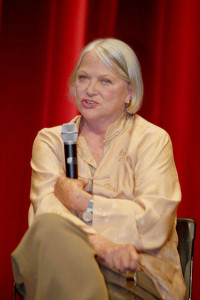
Unexpected advice
As for advice to others dealing with the awards-season whirlwind, Fletcher says, “I wouldn’t give anybody any advice.”
“The only advice I give is when young actors ask how you become an actor,” she says. “I say don’t do it unless you absolutely have to do it, because you have to eat rejection every day of your life. Even after you’ve had success, you have that rejection. You can’t take it personally, or it will kill you.”
Life and career post-Oscars has been a mixed bag for Fletcher. She and Bick divorced in 1977, and she has lost two siblings, Georgie and John. But Fletcher is also proud of her two grown sons, and her other sister, Bobbie, who lives in Virginia. She has appeared in a number of TV series and movies, including “Star Trek: Deep Space Nine,” “Brainstorm” (Natalie Wood’s last film), “The Karen Carpenter Story” and, most recently, “Private Practice” and “Shameless.” Along the way, Fletcher has earned Emmy nominations for “Picket Fences” and “Joan of Arcadia,” and in 1999, she received the Lifetime Achievement Award from Birmingham’s Sidewalk Moving Picture Festival.
The past couple of years, Fletcher has been going through chemotherapy after a recurrence of breast cancer.
“I’m good now,” she says. “But I’m 81, so I’m limited in what I can do. But there are obviously parts I can play, so I hope to again.”
She’s pleased to have the legacy of her speech at the 1976 Academy Awards, one that ranks right up there with the Oscars’ most memorable.
“I got an enormous response from the deaf community from around the world, and the Academy has made a big deal over it over the years, so I know that it had an impact,” Fletcher says. “When something is true and real and authentic, you can’t hide it. That’s just the way it is.”
Her parents have passed away, but as in her speech, Fletcher’s voice still cracks when she speaks of them.
“You can’t fake that feeling,” she says. “Everything I am, I owe to them and their example. They were extraordinary people and I was so glad to get to acknowledge them.”





